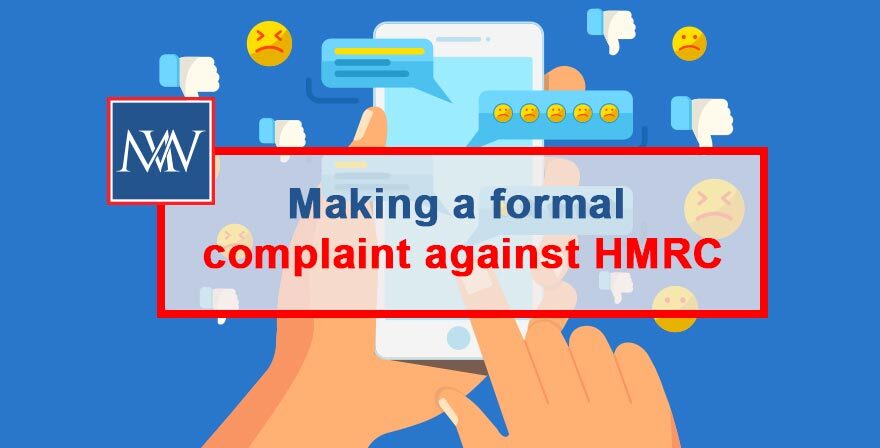
Making a formal complaint against HMRC
Sometimes a taxpayer may find themselves in a position whereby HMRC seem to be taking an inordinate amount of time to settle a particular issue or the service received as a ‘customer’ does not meet the standards expected or even that they feel they are being discriminated against. Although complaints can be made in several ways, (‘informal’ being where a taxpayer only wishes to express their dissatisfaction without seeking compensation), should the taxpayer want to formalise the complaint HMRC has a set complaints procedure under the ‘HMRC Charter’.
The starting point for any formal complaint is either a phone call or completion of the online iForm that can be found on the taxpayer’s own government gateway or by writing a letter. The complaint will be dealt first by the original point of contact whenever possible. HMRC has empowered complaint handlers to make decisions without needing to refer to a higher-level policy unit. In the month to February 2021, 4,149,407 complaints were received.
If, after further correspondence with that person the taxpayer is still dissatisfied then HMRC can be asked to review the matter again (termed ‘Tier 1’). This time the review is undertaken by an impartial special complaints officer separate from whoever responded to the initial complaint. That officer will review the file, analysing each stage so that any errors in procedure may be identified. This review should take approximately a month although currently it may take longer due the impact of the coronavirus on staffing levels. Even so, HMRC statistics show that in February 2021 a total of 5,497 complaints were elevated to ‘Tier 1’ with approximately 45% being upheld.
If, after receiving the result of their review, the taxpayer is still not satisfied, then they can ask for another review to be undertaken by a different member of the complaints team who will give a final response (termed ‘Tier 2’). In February 2021, 402 such complaints were re-reviewed, 34% being upheld.
Should the file have gone through the steps above, with the complaint being fully investigated but the taxpayer still not satisfied, then the next step is to complain to the independent adjudicator. This department is independent of HMRC but has an office within HMRC as part of their service level agreement.
The final step is to take the complaint to the parliamentary ombudsman via the taxpayer’s MP in a letter for the attention of the Parliamentary and Health Service Ombudsman if the taxpayer is still not satisfied.
Financial redress
The aim of HMRC’s complaints procedure is first and foremost to put things right and apologise if it is found that the case has been acted upon incorrectly. However, the Charter allows financial compensation in some instances, for example, reimbursement costs which have been reasonably incurred by the complainant as a direct result of HMRC’s actions, or compensation for the worry and distress that the mistakes and/or delays may have caused the taxpayer.
These costs include basic quantifiable amounts such as ‘out of pocket’ expenses (travel, stationery, postage and telephone costs). Professional fees for advice given to a taxpayer as to the complaint are only considered where the taxpayer would face extreme hardship by paying the invoice and the situation is likely to continue for an uncertain period. Other more relative costs depend on the circumstance and not designed to put the taxpayer in a better position financially than would be the case if everything has gone smoothly. The Charter states that payments are for ‘demonstrable financial loss, but not for any loss which is hypothetical, speculative or insubstantial’. In the context of our policy on remedy, the term ‘demonstrable’ should be understood to mean ‘evidenced beyond reasonable doubt’.
Consolatory payments are not the taxpayers’ by right and will only be considered where it is proved that there has been a serious (or persistent) error. A complainant is certainly not going to get rich on such proceedings as there are strict monetary limits. Payment will usually be within the range of £50 to £250 although payments of up to £1,000 or even £2,000 will be considered.
For more information on making a formal complaint against HMRC, Book a free consulation
Need Accountancy Support?
For information on bespoke training, or if you have any other questions for Makesworth Accountant, please fill in your details below
















 151
151